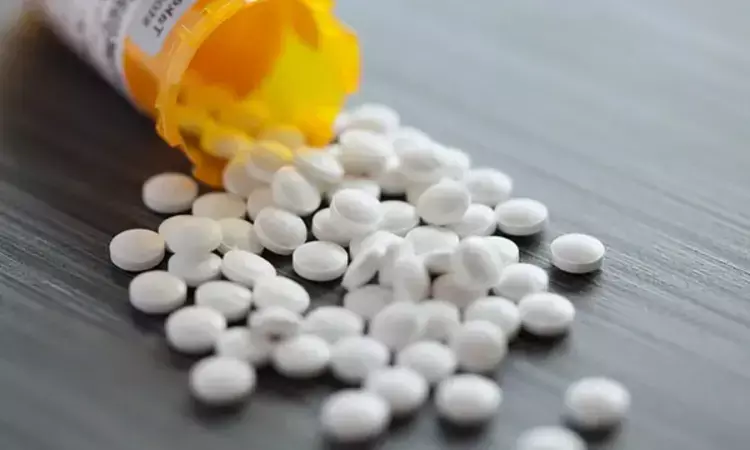- Home
- Medical news & Guidelines
- Anesthesiology
- Cardiology and CTVS
- Critical Care
- Dentistry
- Dermatology
- Diabetes and Endocrinology
- ENT
- Gastroenterology
- Medicine
- Nephrology
- Neurology
- Obstretics-Gynaecology
- Oncology
- Ophthalmology
- Orthopaedics
- Pediatrics-Neonatology
- Psychiatry
- Pulmonology
- Radiology
- Surgery
- Urology
- Laboratory Medicine
- Diet
- Nursing
- Paramedical
- Physiotherapy
- Health news
- Fact Check
- Bone Health Fact Check
- Brain Health Fact Check
- Cancer Related Fact Check
- Child Care Fact Check
- Dental and oral health fact check
- Diabetes and metabolic health fact check
- Diet and Nutrition Fact Check
- Eye and ENT Care Fact Check
- Fitness fact check
- Gut health fact check
- Heart health fact check
- Kidney health fact check
- Medical education fact check
- Men's health fact check
- Respiratory fact check
- Skin and hair care fact check
- Vaccine and Immunization fact check
- Women's health fact check
- AYUSH
- State News
- Andaman and Nicobar Islands
- Andhra Pradesh
- Arunachal Pradesh
- Assam
- Bihar
- Chandigarh
- Chattisgarh
- Dadra and Nagar Haveli
- Daman and Diu
- Delhi
- Goa
- Gujarat
- Haryana
- Himachal Pradesh
- Jammu & Kashmir
- Jharkhand
- Karnataka
- Kerala
- Ladakh
- Lakshadweep
- Madhya Pradesh
- Maharashtra
- Manipur
- Meghalaya
- Mizoram
- Nagaland
- Odisha
- Puducherry
- Punjab
- Rajasthan
- Sikkim
- Tamil Nadu
- Telangana
- Tripura
- Uttar Pradesh
- Uttrakhand
- West Bengal
- Medical Education
- Industry
Use of PPIs tied to drug-induced lupus erythematosus:JAMA

France: Proton pump inhibitors (PPIs) are linked with pharmacovigilance signals for the occurrence of drug-induced lupus erythematosus (DILE), states a research letter published in JAMA Dermatology.
Previous studies have suggested the role of proton pump inhibitors in the occurrence of DILE for drug-induced cutaneous lupus erythematosus (DI-CLE) and systemic lupus erythematosus (DI-SLE) but are not adequately characterized. Therefore, Pauline Bataille and the research team from France aimed to investigate the pharmacovigilance signal of PPI-associated DILE. For this purpose, they used different indicator tools for disproportionate reporting. They also sought to better characterize the spectrum of PPI-associated DILE by zeroing in on DILE type and therapeutic management.
In the analysis, the researchers included DILE cases reported by a physician after Jan. 1, 2002. They described the "immunological, clinical and therapeutic" management of suspected PPI-associated DILE.
The study demonstrated the following findings:
- A total of 21,104,559 cases reported between January 1995 and December 2019 were included in the VigiBase database, among which 625 were identified as DILE associated with a PPI. Among 307 of the cases, a PPI was the only drug suspected. Omeprazole was the PPI most often involved, at 30.4% of cases.
- The analysis of the French database yielded 60 cases of proton pump inhibitor-associated DILE, of which 49 were included for analysis following review.
- Esomeprazole (Nexium, GlaxoSmithKline) was the most common inhibitor in this group and was involved in 46.9% of cases.
- Treatment was ended in 35 of 41 patients. Of these 35 patients, 51.4% achieved disease remission without specific treatment.
"The study highlighted the following points; first, PPIs may be linked with not only isolated DI-CLE but also DI-SLE with or without cutaneous involvement," the researchers wrote. "Secondly, subacute CLE was found to be the most common subtype in contrast with discoid CLE in the general population among the cases of DI-CLE cases."
The researchers also identified two cases of discoid cutaneous lupus erythematosus and one of tumidus lupus, which stresses that other subtypes of CLE may be associated with PPIs.
About Proton Pump Inhibitors
Proton pump inhibitors (PPIs) are medications that work by the reduction of the amount of stomach acid made by the stomach lining. They are used to relieve symptoms of gastroesophageal reflux disease (GERD), or acid reflux, treat a duodenal or stomach (gastric) ulcer and treat damage to the lower oesophagus resulting from acid reflux.
Reference:
Bataille P, Lebrun-Vignes B, Tubach F, et al. Proton Pump Inhibitors Associated With Drug-Induced Lupus Erythematosus. JAMA Dermatol. 2022;158(10):1208–1210. doi:10.1001/jamadermatol.2022.2421
Dr Kamal Kant Kohli-MBBS, DTCD- a chest specialist with more than 30 years of practice and a flair for writing clinical articles, Dr Kamal Kant Kohli joined Medical Dialogues as a Chief Editor of Medical News. Besides writing articles, as an editor, he proofreads and verifies all the medical content published on Medical Dialogues including those coming from journals, studies,medical conferences,guidelines etc. Email: drkohli@medicaldialogues.in. Contact no. 011-43720751


